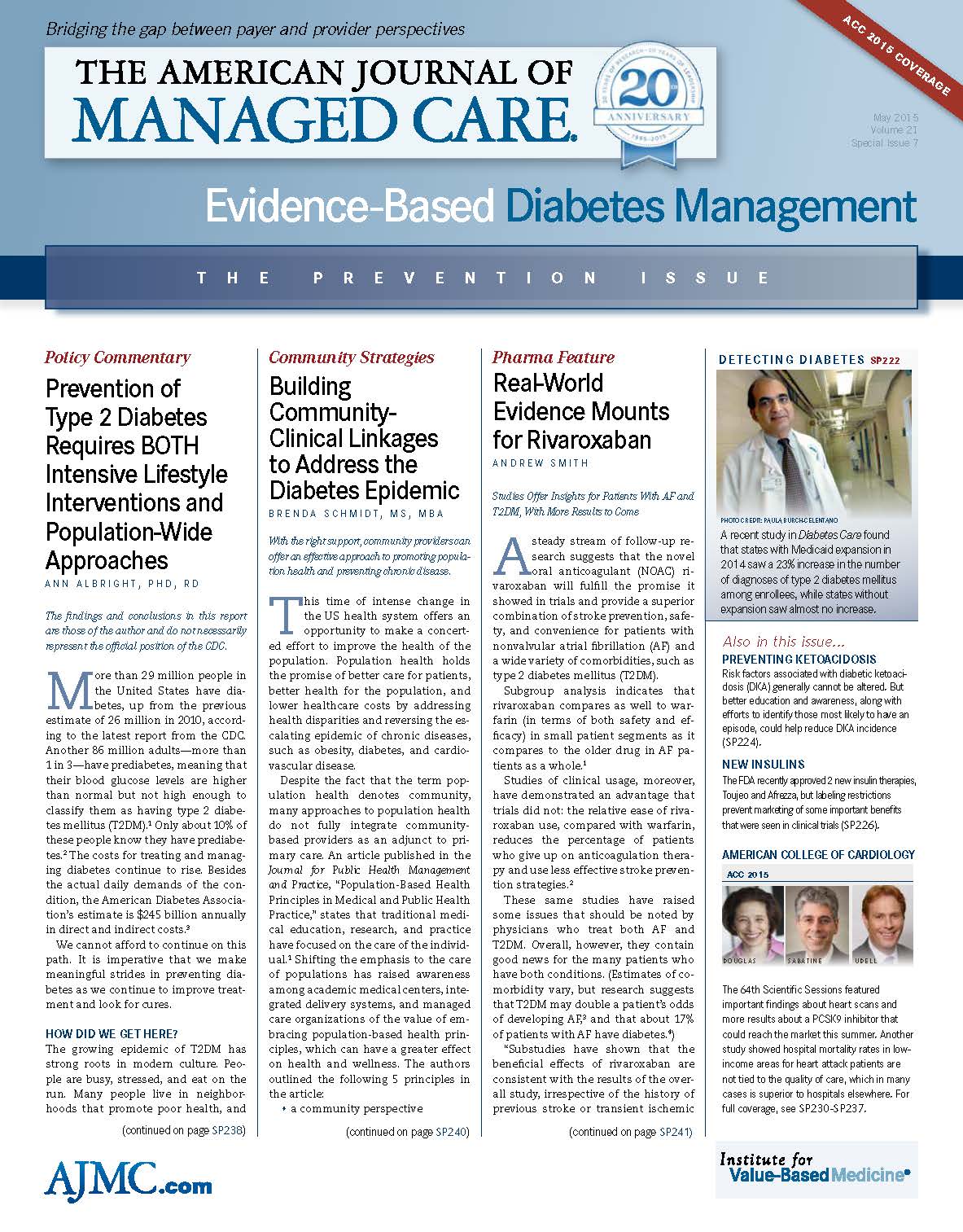- Center on Health Equity & Access
- Clinical
- Health Care Cost
- Health Care Delivery
- Insurance
- Policy
- Technology
- Value-Based Care
Rivaroxaban Postmarketing Study Continues to Find Fatal Bleeds Are Rare
Coverage from the 64th Scientific Sessions of the American College of Cardiology.
Researchers responsible for the postmarketing studies of rivaroxaban, a novel oral anticoagulant used to prevent stroke and for other indications, updated their data at the 64th Annual Scientific Sessions of the American College of Cardiology (ACC),1 but reached the same conclusions as before:
- Risks of major bleeding are low
- Deaths from major bleeding are rare
- Results, now based on a review of 31,833 patient records, are consistent with the registration trials that led to the drug’s approval1,3
​
The study team, led by Sally Tamayo, MD, head of cardiology at the Naval Medical Center of Portsmouth, Virginia, first published its conclusions based on 15 months’ worth of results for 27,467 patients in Clinical Cardiology in February 2015.2 The update, with 18 months’ worth of data on more patients, was presented March 15, 2015, at the ACC meeting in San Diego.
Using a validated database method (Cunningham algorithm), 9.7 million electronic medical records from the Department of Defense were examined, yielding 31,833 patients from January 2013 through June 2014. Major bleeding related hospitalizations among those with NVAF were examined. Major bleeding events included gastrointestinal bleeding, hemorrhagic strokes and other intracranial bleeds, and genitourinary bleeding.
Of the rivaroxaban patient population identified, 622 experienced at least 1 major bleeding event, for an incidence rate of 2.85 per 100 person-years [95% CI, 2.63-3.08].
Those experiencing major bleeding events were older, with a mean age of 78.7 years, compared with a mean age of 75.8 years for those who did not experience such an event. Among those experiencing a major bleeding event, 50.5% were men; in the other group, 55.6% were men. Comorbidities were more common among those experiencing major bleeding events, especially hypertension (94.1%) and coronary artery disease (72.1%). Those without major bleeding had lower rates of hypertension (62.5%) and coronary artery disease (34.4%).
The most common major bleeding site was gastrointestinal (88.3%), followed by intracranial (7.7%). Care included transfusions (37.3%), and most major bleeding patients were sent home (73.8%). During the study period, 20 patients with major bleeding (average age 82.1 years) died during hospitalization, at a fatality rate of 0.09 per 100 person-years [95% CI, 0.04-0.150.] Fatalities were higher among those with intracranial bleeds (29.2%; 14 of 48 cases) compared with gastrointestinal bleeds (1.1%; 6 of 549 cases).
​
References
1. Tamayo S, Patel M, Yuan Z, Hopf K, Peacock WF. Postmarketing pharmacovigilance study for the active detection and evaluation of major bleeding in rivaroxaban users with non-valvular atrial fibrillation. Presented at the 64th Annual Scientific Sessions of the American College of Cardiol-ogy; March 15, 2015; San Diego, CA.
2. Tamayo S, Peacock WF, Patel M, et al. Characterizing major bleeding in patients with nonvalvular atrial fibrillation: a pharmacovigilance study of 27,467 patients taking rivaroxaban. Clin Cardiol. 2015;38(2):63-68.
3. FDA approves Xarelto to prevent stroke in people with common type of abnormal heart rhythm [press release]. Silver Spring, MD: FDA Newsroom; November 4, 2011. http://www.fda.gov/ NewsEvents/Newsroom/PressAnnouncements/ucm278646.htm.


